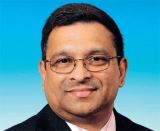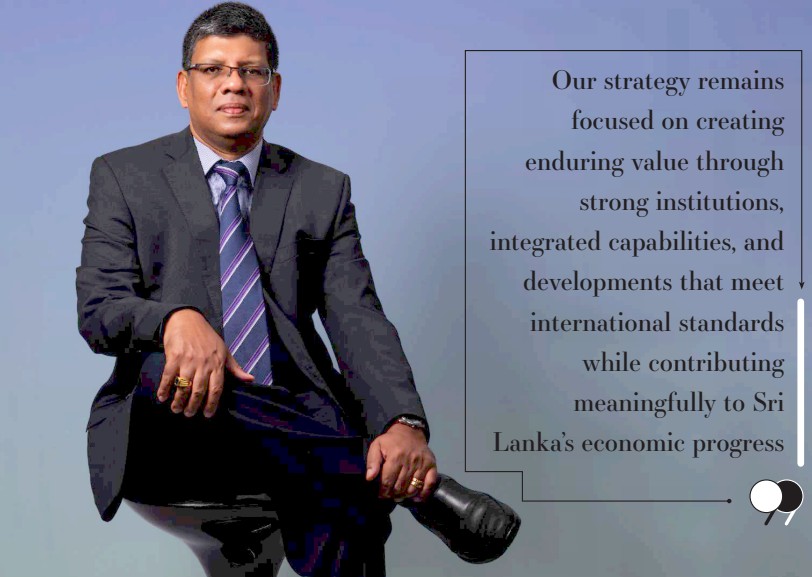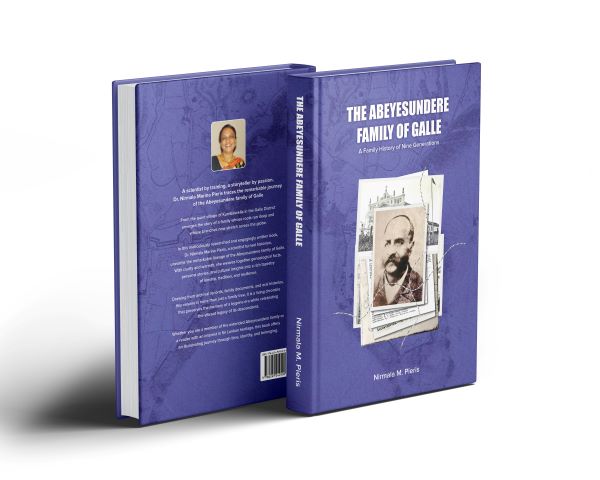With India on the rise Sri Lanka can only rue the lost opportunities!
By Aubrey Joachim

 Another Indian – Ajay Banga, former CEO of Mastercard has been nominated by President Joe Biden to head the World Bank. This gentleman joins a cabal of Indians who lead the world’s most prestigious organisations from Microsoft to Google, IBM to Cognizant. In fact, 27 of the world’s most successful companies are headed by Indians. This is only the top tier. Thousands more are waiting in the wings. Some of these foreign educated young professional types are also running India Inc. Most of India’s States are run and managed by foreign educated, experienced middle aged technocrats. The cabinets of some of the States reads like a who’s who of Harvard, Stanford or Wharton. It is not therefore a surprise that today India has emerged at the top of the changing world order. It is predicted to be the fastest growing major economy. It is also influencing the globe in other ways – even calling out the West for its hypocrisy.
Another Indian – Ajay Banga, former CEO of Mastercard has been nominated by President Joe Biden to head the World Bank. This gentleman joins a cabal of Indians who lead the world’s most prestigious organisations from Microsoft to Google, IBM to Cognizant. In fact, 27 of the world’s most successful companies are headed by Indians. This is only the top tier. Thousands more are waiting in the wings. Some of these foreign educated young professional types are also running India Inc. Most of India’s States are run and managed by foreign educated, experienced middle aged technocrats. The cabinets of some of the States reads like a who’s who of Harvard, Stanford or Wharton. It is not therefore a surprise that today India has emerged at the top of the changing world order. It is predicted to be the fastest growing major economy. It is also influencing the globe in other ways – even calling out the West for its hypocrisy.
Not too long ago India was a languishing basket case until the economic reforms and visionary leadership of Dr. Manmohan Singh turned her fortunes. In less than three decades to 2018 India’s GDP rose from $266 Billion to $2.3 Trillion. In that time, it has also produced some of the best brains that are calling the shots around the world. And, in the era of digitalisation the digital skills coming out of India are an asset envied by all and powering the next industrial revolution.
By contrast Sri Lanka’s GDP has grown from $8 Billion in the 90’s to circa 80+ Billion in 2021 – some 10 fold. Slightly higher than the rate of India during the similar period albeit from a smaller base. Both countries had similar political machinations since independence however of late India seems to have discovered the elixir to rejuvenate and turn itself around – invite its foreign educated sons and daughters to come back and take the economic reins. Sri Lanka too has its fair share of high achievers among its diaspora however it is unlikely that such talent will be invited let alone tolerated in their land of birth.
It is a well-known fact that in the 1990’s smart Indian diaspora were offered a type of non-resident visa status to return home. It was these individuals – mainly from the US – who are credited for having started the BPO boom in India which gave huge opportunities to young Indians to develop initially IT competencies and now digital competencies. Such beneficiaries are even seen among the hordes of Indian migrants to Australia who are driving the cogs of industry, commerce and even the public sector. On the other hand, what dissuaded qualified expat Sri Lankans from taking their skills back to the shores of Sri Lanka was the significant red tape involved in the dual citizenship process. In addition, while Indian diaspora were welcomed and embraced with open arms – even into politics, the frog-in-the-well attitude and mindset of Sri Lankans who did not make the cut in leaving the shores of Sri Lanka look with scorn and suspicion at their well- intentioned countrymen wanting to give back knowledge and capabilities. Therein lies the difference.
Given the current economic woes of Sri Lanka exacerbated by the dearth of skills in major overseas labour markets especially in the IT and digital space many Sri Lankans with such skills are also taking flight. Last year a record number of some 350k Lankans went overseas for work. Some of them no doubt would rise to the top in their respective areas of skills, but would mother Lanka benefit from such talent? They too will fall into the aforesaid category who would have fled for good. Politicians are hoping that such expatriates would at least remit back their earnings. Only time will tell. Historical track records are not good.
Is the country then missing an opportunity that can be capitalised upon to turn things around? With the talk of elections in the air and a severe dearth of intelligentsia among the current and aspiring legislators is it time to think outside the box? Can capable Sri Lankan diaspora be attracted to consider taking on the role of leading the country out of the dire straits it has got into. Can such expatriates of standing, repute and honest disposition be called upon to take on roles and responsibilities in the public sector to add rigour and discipline that is so wanting? At least some politicians are beginning to think on these lines.
At this point, Sri Lanka can do with all the help it can in areas of public policy, administration, legal frameworks, project management, technical skills development, human capital development, and the list goes on. However, it would take a major shift in political will as well as a mindset change among the masses to recognise that there is nothing wrong in recognising and accepting the shortcomings and having the humility and graciousness to accept the offer of help. This is an opportunity that Sri Lanka cannot miss.
Aubrey Joachim is a Sri Lankan expat who is an Australian citizen and is a Past Global President of the Chartered Institute of Management Accountants UK.



















